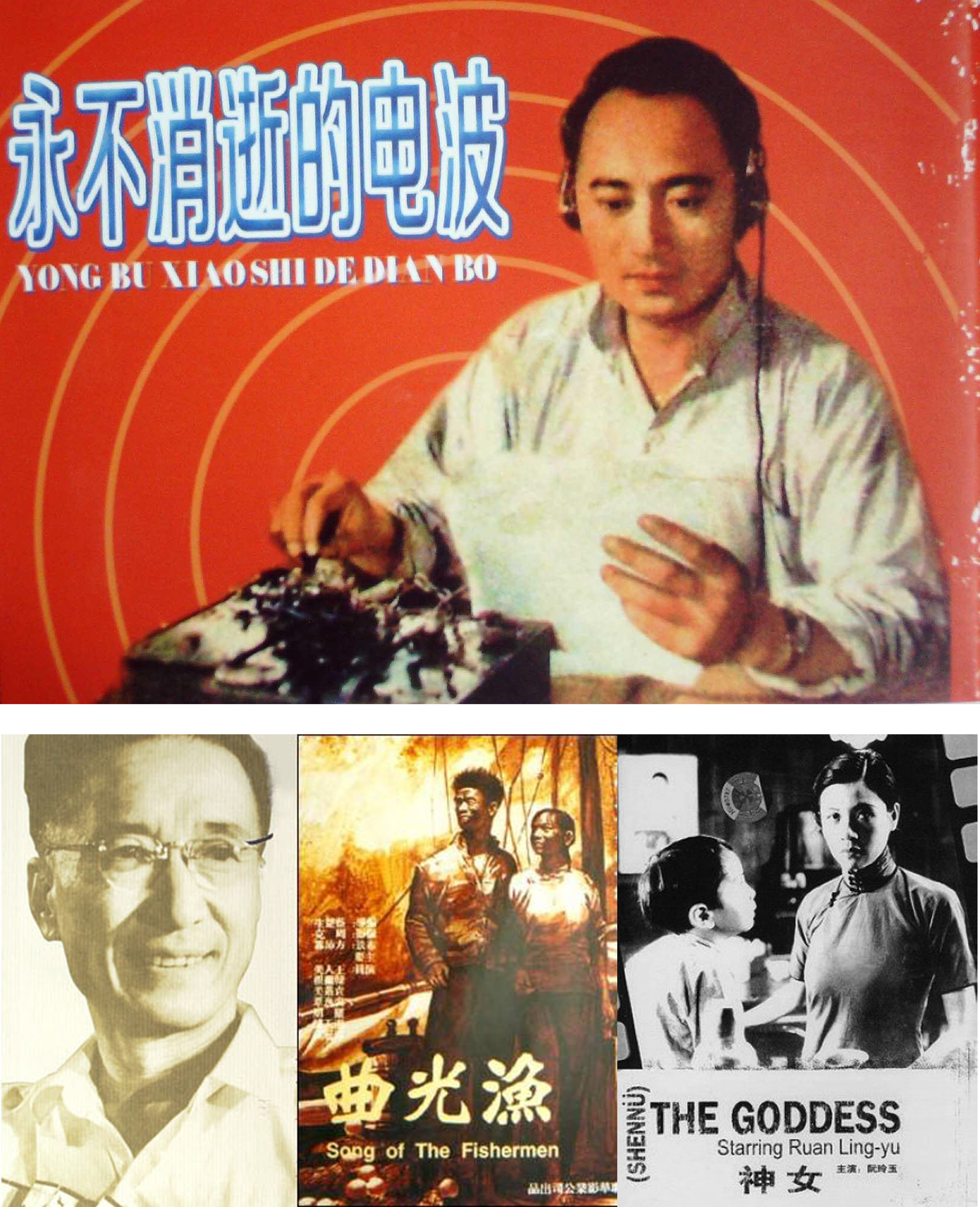Film industry’s problems can be resolved through dedication to art

The Eternal Wave, Song of The Fishermen and The Goddess are three Chinese movies that have high artistic value and lasting popularity. Also pictured is Song of The Fishermen director Cai Chusheng.
In 2010, China’s box office earnings reached 10 billion yuan, and in 2014, the number reached nearly 30 billion. In the first half of 2015, the figure broke 20 billion. Such remarkable progress in terms of box office earnings is heartening, but we should not overlook problems in the film industry.
There are areas of significant waste. We can’t expect precise cost controls in terms of film production, but excessive waste is not justifiable. Every year, around 600 movies are approved to be screened in China after being examined by the authorities. But only 100 or so actually make it to the screen. What’s even worse, few of them have any long-term impact.
Another problem is the excessive emphasis on 3D and IMAX technologies, while neglecting the story-telling techniques and aesthetics residing in the voice and picture elements in the films. Actually, 2D technology is enough for most films, but 3D and IMAX films seem to enjoy more popularity among audiences. Some foreign studios produce tailor-made 3D movies, which were originally shot by 2D technology for the domestic market, for Chinese audiences to increase box office returns.
The third is the imbalanced investment in the industry. Right now, cinemas are mainly built in cities where the proportion of people going to cinemas is high. In rural areas, people have no access to cinemas even if they want to go. This is why even though the total box office revenue is increasing, profits gained by large cinemas are decreasing, as more and more cinemas are emerging around places where they are situated.
In addition to problems in the industry, there are also problems related to film creation. Some producers and playwrights regard profits as the biggest measure of success. So they care more about the box office returns or popularity of films than artistic value.
In the near future, China will undoubtedly lead the world in box office revenue. The issue now is to emphasize the artistic quality of films and increase the audience’s artistic discernment, in addition to paying attention to industrial development. The ultimate goal is to produce a large quantity of excellent films that can stand the test of time, and to promote the influence of Chinese films worldwide.
Chinese film creation should set a higher goal than merely serving the domestic market and being satisfied with a few movies becoming hits. To this end, it is necessary to cultivate the audience, especially young viewers. Films occupy a great part of the leisure life of urban young people. But, they are fickle in their tastes for films, and have the tendency to follow the current trends. They should be trained to avoid following merely the pursuit of entertainment in their film choices, and to raise their expectations for artistic quality and cultural content of films.
Hence, both the industry and creatives should strive for progress, and contribute to the diverse development of the film industry in the world.
Ni Xiangbao is from the Research Institution of Film and TV Art at Soochow University.
